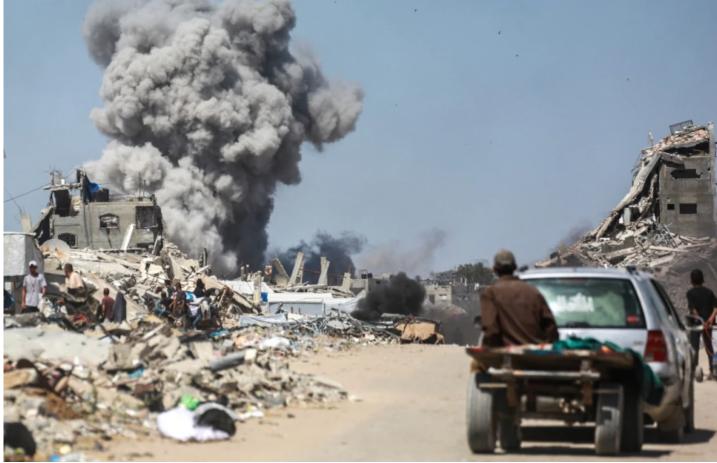Hamas offers hostage deal, seeks full ceasefire

In a carefully worded statement, the group stopped short of fully accepting or rejecting the plan, instead putting forward a counteroffer and calling for a full ceasefire.
Hamas has agreed to release 10 living hostages and 18 bodies in response to a new US-backed ceasefire proposal—but only if the deal includes a complete and permanent end to the war in Gaza.
In a carefully worded statement, the group stopped short of fully accepting or rejecting the plan, instead putting forward a counteroffer and calling for a full ceasefire.
The US has said Israel already signed off on the deal, crafted by Middle East envoy Steve Witkoff. Israel has yet to respond publicly to Hamas's latest position.
The group’s demand comes as it finds itself under mounting pressure from both war-weary Gazans and international mediators.
"We will not agree to partial deals that fail to secure a complete and permanent end to the war," said senior Hamas official and lead negotiator Khalil al-Hayya, restating the group’s position.
Israel resumed its military assault on Gaza on March 18, ending a two-month truce brokered by the US, Egypt, and Qatar.
The campaign was launched after Hamas's cross-border attack on October 7, 2023, in which 1,200 people were killed and 251 others taken hostage.
Since then, at least 54,381 people have been killed in Gaza, according to the Hamas-run health ministry.
Caught in what analysts describe as its most difficult position since the war began, Hamas lacks the strength to resist a fresh Israeli ground assault, yet is reluctant to accept a proposal it believes falls short of its goals.
Its response, described as vague and noncommittal, was seen as an attempt to delay or reshape negotiations.
Meanwhile, humanitarian conditions in Gaza continue to worsen under Israel’s ongoing blockade.
Aid trucks have been trickling into the territory, but the United Nations says between 500 and 600 are needed daily to meet basic needs.
Crowds desperate for food have overrun delivery points, with 47 people injured at one site last week.
"We're seeing food set on the borders and not being allowed in when there is a population on the other side of the border that is starving," said UN humanitarian chief Tom Fletcher.
"We're hearing Israeli ministers say that is to put pressure on the population of Gaza."
